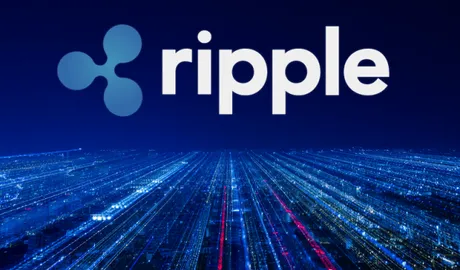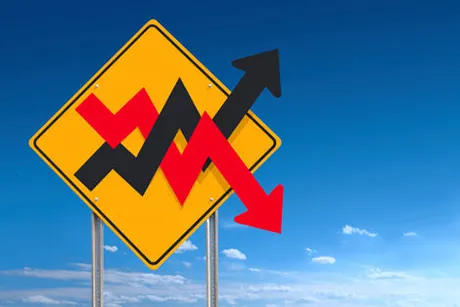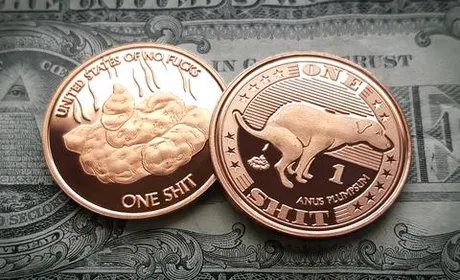
As I pointed out in my last post, crypto isn't just banking the unbanked and allowing communities to control their own currency. 2019 is ushering in a corporate storm of blockchain interest. Some of the same people spreading FUD about this tech are trying to corner the market. The push for ETFs is practically violent. At the core of this incorporated movement is a flood of stable coins pegged to the dollar.
The blockchain does not play favorites. It's permissionless open architecture. We can't ban the man from experimenting with this tech and brainwashing the public into using their co-opted inferior product that they control. Decentralization is a double-edged sword.

Ripple's XRP is a good example of this, but stable-coins pegged to USD backed by cash stored in a fractional reserve are even worse. This raises the question: what are stable coins exactly and what is the point of them?
The stated purpose of stable coins is simple enough. The frightening volatility of the blockchain creates demand for similarly borderless and permissionless assets that have no such volatility. The main argument is that retail vendors refuse to risk their business gambling on cryptocurrency's aggressive up and down movements. The problem is that many stable coins are in fact permissioned and payments can be reversed without user consent.
In addition, these rationales give absolutely no indication as to why so many mega-corporations are clamoring to make their own stable coin. These titans of industry are ravenously pursuing a business model that will require them to hold billions of dollars in a bank. We have to ask ourselves why intelligent businessmen at the top of the pyramid are willing hold the bag of an asset that is guaranteed to consistently lose value over time. What is the trade-off here?
I explained the unstated benefit in my last post. The corporate elite is positioning themselves in a place where they can begin to leverage their position into becoming their own self-regulated central bank. A corporation able to print and issue its own currency is the ultimate pipe dream. Sure, today they are backed by the "full faith and credit" of USD. I also seem to recall that USD was backed by gold at one point. Gee whiz, didn't that turn out swell.

However, there will also obviously be a legitimate business model. The easiest way to extract some value is with a tiny transaction fee. This is already achieved on the exchanges, but will likely also be employed on the other services that get rolled out like global remittances. It's going to be very easy for them to undercut credit card fees and other financial services like wire transfers. Bloated banks and companies like Western Union are first on the chopping block.
Traditional banking isn't going to get crushed by the grassroots blockchain movement. Corporate greed is going to beat us to the punch. Once they've largely eliminated the competition they will realize the opportunity to start doing all kinds of shady practices behind closed doors just like their predecessors. Granted, this could take a while.
For example, when Facebook came out it didn't have ads. Mark Zuckerberg employed a wise strategy of getting as many users on the platform as possible before selling out. Many stable coins will likely follow the same path. They won't start doing anything shady until they have an established user base. Hopefully by the time this happens the grassroots blockchain infrastructure is built up enough to undercut this new beast that's been created.

It's also important to realize what stable coins are being traded for in this first place. They are currently a haven against extreme volatility, so they are mostly being exchanged for volatile assets. Are stable coin operators gambling on the market or exchanging these assets for USD?
Their balance sheets will imply they aren't gambling and all stable coins are backed by dollars. However, the mere existence of fractional reserves can completely obscure how many of the stable coins are actually being backed by liquid funds. Just because every stable coin is backed by a dollar doesn't mean those dollars are liquid. They can be loaned out as debt again and again in an untraceable web of instability and double spending, yet they would still pass an audit as legitimate.
Think about it. A whale speculates the market will tank so they exchange Bitcoin for Tether. What does Tether do with the Bitcoin? Someone has to hold the bag. If they dump it on the market they might lose money on the trade if the exchange doesn't have the liquidity to handle it. Do they sell the Bitcoin to their own exchange? To other exchanges? To private investors? What happens when the whale decides he wants the Bitcoin back?
See, when you actually start thinking about the detailed logistics it gets very convoluted. There are very obviously volume limits and weird things that have to go on in the background to actually make this stuff work without betting the farm.
Imagine if stable coin operators made a few gambles like this (perhaps even insider trading) and they make 10x or more. Now the operator has even more leverage to take even more risk in an already unstable environment.

We also have to assume that stable coin operators can exchange stable coins at $1 parity and have access to one or more exchanges where they don't have to pay transaction fees. This implies that every time the stable coin in question breaks its peg in the slightest bit free money is being put on the table.
If the stable coin is less than a dollar they get to buy it up and pay off their debt at a discount. If the stable coin is more than a dollar they get to create them out of nowhere and sell them for more than their backed value. Stable coin operators will play a balancing act of purposely letting the peg fluctuate. The more they let it flux the more money they'll make, but at the same time they risk gaining a bad reputation as a stable coin.
It should be very alarming when coins like Tether break their peg for extended periods of time. That's just free money on the table. Why aren't they scooping it up, making a profit, and increasing their reputation? Shouldn't their funds be liquid enough to pull this off? Shouldn't they have already made such significant profits from arbitrage and fees that their buffer reserves are massive? Shouldn't they be using other stable-coins as collateral as well to increase their liquidity? So many questions, and we never seem to get the answers. The reason is the truth would send the stable coin user-base running for the hills back to the assets they never should have cashed out of in the first place.
Conclusion
The corporations aggressively entering the cryptosphere are going to destabilize the banking sector before we even have the chance. It will be our job to then destabilize these new corporations masquerading as banks. Luckily for us they are paying for their own obsolescence. Every time I see a blockchain patent I laugh. The same is true when regarding rules and regulations. The infrastructure of the future is permissionless. These centralized solutions are only a temporary quick fix to alleviate growing pains.
If you absolutely must use a stable coin, use Dai. Every $1 of Dai is backed by $3 Ethereum, making 100% of all the debt liquid and transferable within minutes anywhere in the world. The bank of MakerDAO will never become insolvent. Still, it's pegged to USD and shares the same fate: eventual irrelevance.
Hopefully a stable coin is invented that isn't pegged to any asset. Considering how fast the cryptosphere is evolving, I'm willing to bet a development team will be able to come up with a product that slowly gains value over time with little volatility. How many people would invest in a coin with 10%-20% APR? I'm guessing such a product is legitimately possible and would instantly put all stable coins out of business. After all, if cryptocurrency is anything like Moore's Law its value should double every two years. A stable-coin pegged to itself with conservative growth targets could be regulated by its own decentralized community. Considering a product such as this has never existed its value would be astronomical.
Return from "Stable" Coins (continued) to edicted's Web3 Blog
